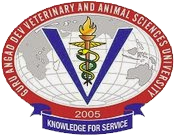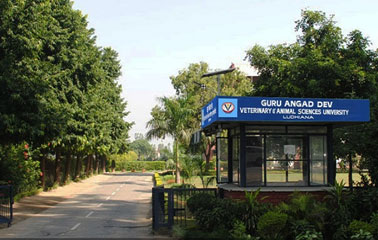

With the onset of monsoon, vector born blood protozoan diseases in animals and humans start increasing day by day. This is due to favourable climate for multiplication of vectors viz. ticks, blood sucking flies and mosquitoes. Dr. L.D. Singla, Professor cum Head, department of Veterinary Parasitology, Guru Angad Dev Veterinary & Animal Sciences University, Ludhiana told that there are increased number of cases of blood protozoan infections including trypanosomososis, theleriosis, anaplasmosis and babesiosis in this season. These diseases result in rise of temperature, blood loss and anaemia in dairy animals. Blood loss leads to drop in milk production and ultimate death. The continued increase in population of vectors may further lead to increased number of cases due to blood protozoan diseases in the post monsoon season. To reduce the losses and fatality due to such diseases, early diagnosis is very important. GADVASU has a well-equipped disease diagnostic laboratory for proper diagnosis of such diseases. Dr. Singla added that to get the maximum profit from dairy animals, prevention and control of these parasitic infections is a very important issue. For prevention of ticks and blood sucking flies, dairy sheds should be kept clean. All the cracks and crevices on the walls and floor of the shed should be filled as these act as hiding spaces for ticks. To prevent breeding of flies, animal dung should not be allowed to accumulate in the sheds. To prevent dairy animals from ticks and flies, acaricidal applications (drugs for treatment of ticks and mites) may be done under the supervision of Veterinary doctor. One of the major problems faced by dairy owners is decrease in efficacy of these chemicals which is due to drug resistance. To overcome such problems, the acaricides should be administered in prescribed dose and same drug should not be used for longer duration. Dr. Singla also suggested spraying of acaricides thrice at the interval of 10 days. Acaricidal drugs should also be sprayed in dairy sheds in double potency and sick animals should be kept separate from healthy animals. Dr. Singla further added that Under Rashtriya Krishi Vikas Yojna Project, the Department of Veterinary Parasitology has generated data base on blood protozoan diseases in livestock that will help in the control of such parasitic diseases.
Dr. Mandeep Singh Bal, Assistant Scientist told that occurrence of gastrointestinal parasitic infections particularly stomach and liver flukes in livestock is most likely during post rainy season. This is due to increased population of snails during rainy and post rainy season which act as intermediate hosts for stomach and liver flukes. Stomach flukes cause amphistomosis in animals which is characterized by fowl smelling foetid diarrhoea and sub mandibular edema which is due to hypoproteinaemia. Liver flukes also result in diarrhoea and death due to liver damage by immature flukes. Animals should be administered anthelminthic treatment as suggested by Veterinary doctor. There are also more chances of skin parasitic infestations during rainy and post rainy season which is due to more proliferation of ticks and mites. Animals should be administered the treatment for the same under supervision of experts.
